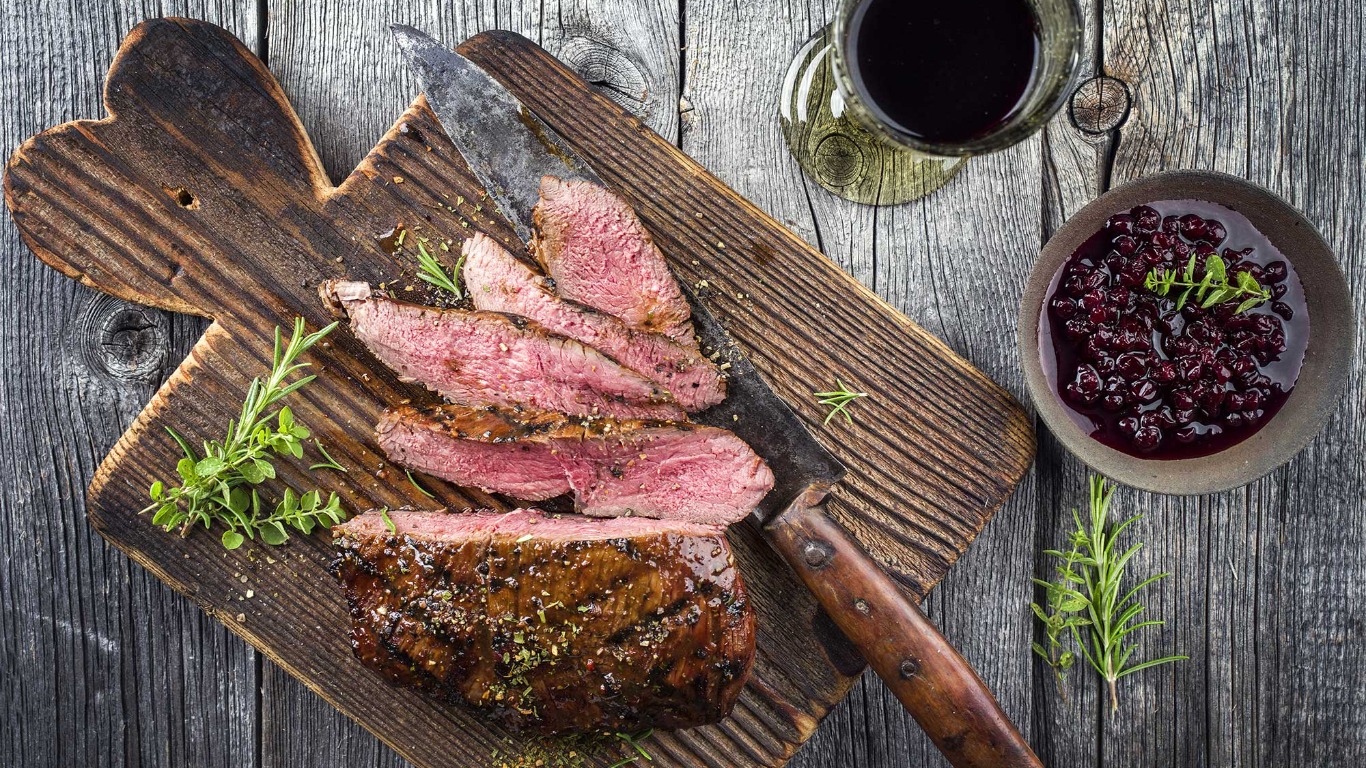Easy guide to game
From venison to wild boar, incorporating game into your cooking can transform mealtimes year-round, offering fresh takes on classic dishes. And it isn’t as hard as you might think, says our expert Charlie Goodgame.
What's the appeal?
Lean, delicious, and environmentally friendly, wild meat has gained in popularity over the past few years.
Sales of game were up for the fifth year running according to one Mintel report, while Waitrose & Partners announced in autumn 2019 that 60% more venison was ringing through its tills compared with the 12 months before.
Once overlooked, game’s sustainable, tasty, seasonal dishes and boost to the UK’s rural communities are making it a favoured healthy alternative once more.
READ MORE: A guide to oysters
The possibilities of cooking with game - be it fur, feather or fin - are endless and range from pheasant one-pots and curries to Moroccan venison, tandoori pigeon kebabs, wild duck stir-fry and even partridge topped homemade pizzas.
Plus the online game cooking community offers exciting and easy homemade recipes and provides a wealth of inspiration for those interested in cooking with wild game meat.
'Game Meat Monday' organised by the British Game Alliance’s initiative has also sparked a trend in meat-based meals, particularly during the autumn and winter months when game birds are readily available.
The benefits
Higher in protein and lower in fat than its popular counterparts (pheasant is 25% higher in protein, 20% lower in fat and 27% lower in cholesterol than chicken and venison is 50% lower in fat than beef) – game can be the flavoursome and nutritious star in any meal.
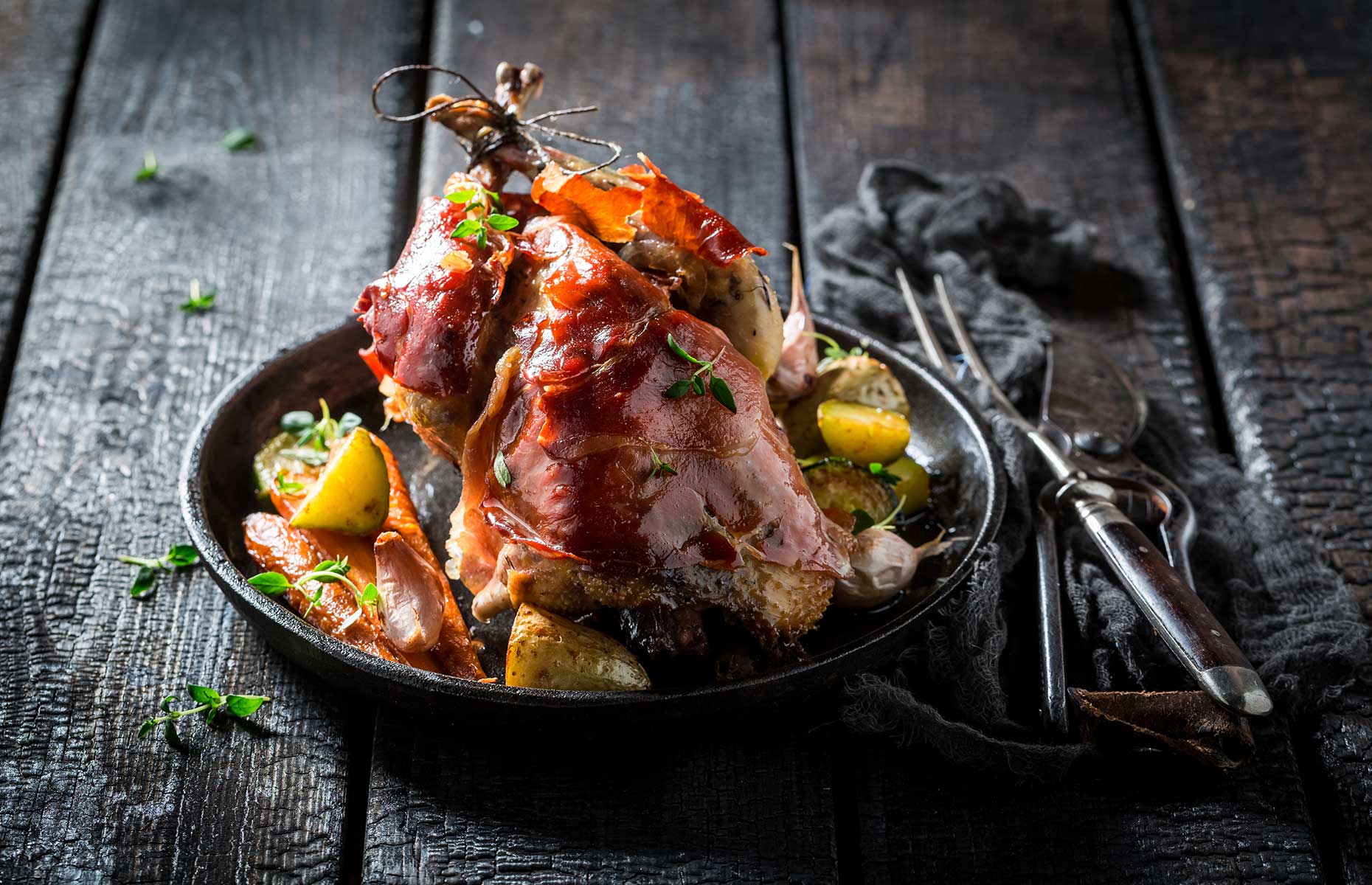
Wild meat can boast higher quantities of essential vitamins and minerals than mass farmed options. For example typically, a serving of vension contains slightly more iron than a fillet steak.
And for those who are conscious of their “carbon foodprint”, wild game, with no international air miles or intensive farming, is a sustainable, local source of organic meat.
Where to buy
Game meat is available at farm shops, butchers, and supermarkets including Waitrose, Tesco, Marks & Spencer and Sainsbury's offering game birds in season and venison throughout the year.
Online specialist wild meat retailers are growing in numbers and include Wild and Game, The Dorset Meat Company, The Wild Meat Company and Field & Flower.
Through the BGA and Taste of Game’s websites you can also find online stockists that can deliver excellent ready-to-cook options.
What's in season when
Below is a short introduction to some common wild meats, when they are available, their health benefits and what to look out for.
Several of the options are available year-round, providing a great base to team up with in-season fruits and vegetables.
Venison
Season: open season for deer is dependent on the species, with meat available year-round.
Benefits: venison is high in omega-3 and iron as well as many other beneficial nutrients including vitamin E, beta carotene, zinc, vitamin B6 and selenium.
What to look out for: venison can be sourced from wild or farmed deer, so pay attention to the source. Supermarkets often have relationships with overseas nations (such as New Zealand) which means there can be serious air miles attached to the meat and it's best to buy British if possible. Butchers and wild meat retailers tend to be less strict about appearance and packaging of the meat, which often means they can offer more truly wild options and with less plastic packaging.
Rabbit
Season: all year
Benefits: rabbit is a white meat and is high in protein, iron and phosphorus as well as other essential vitamins. Rabbit meat is also low in cholesterol and saturated fat making it one of the healthiest meats available.
What to look out for: while rabbit used to be widely eaten across the UK, it is not commonly found in the supermarket but can be bought from some butchers, farm shops and online game retailers.
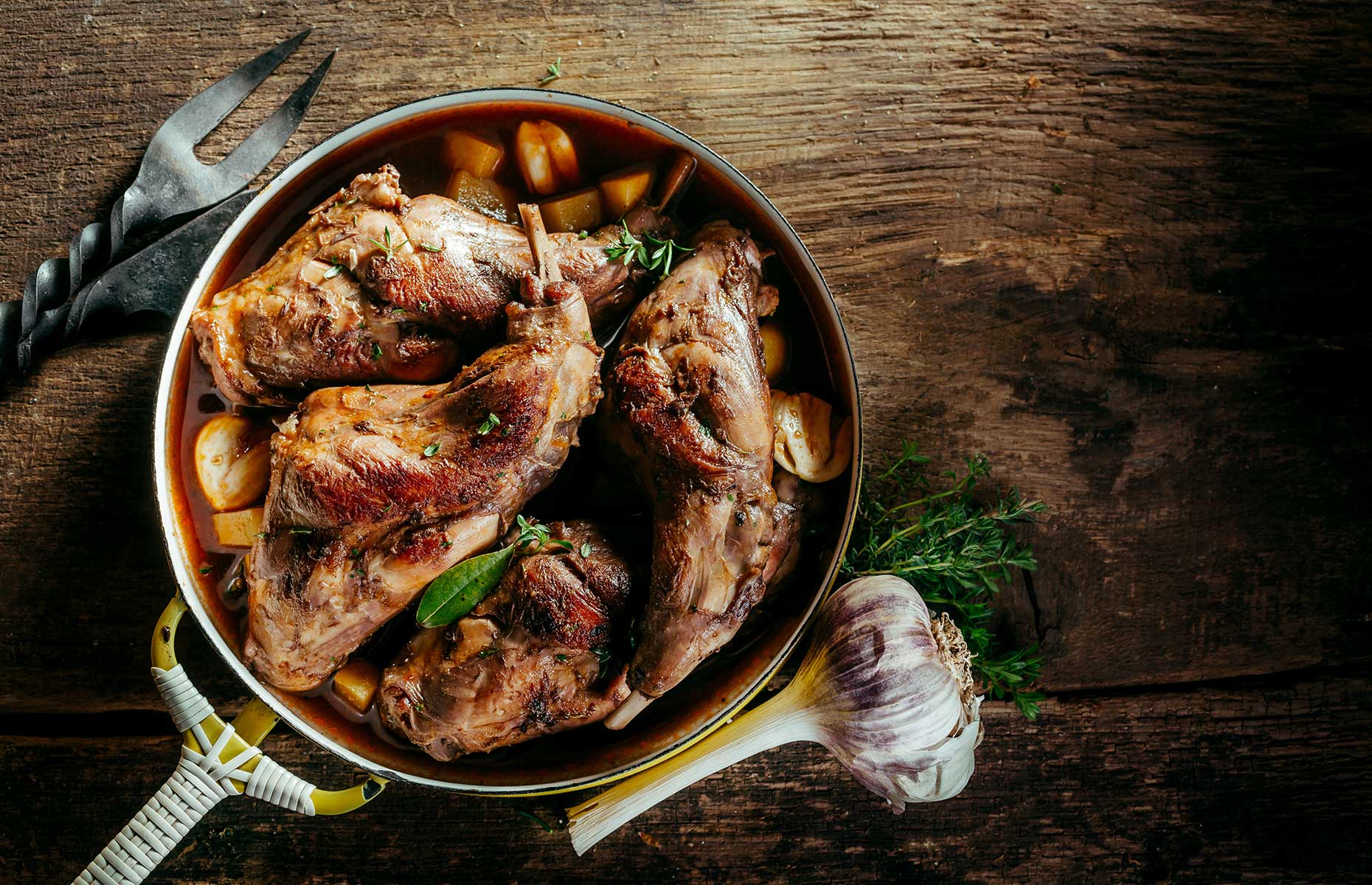
Pheasant
Season: 1 October – 1 February
Benefits: pheasant meat is low in fat and cholesterol and high in protein and essential vitamins such as selenium.
What to look out for: pheasant is leading the way in the re-popularising of game birds, with Marks & Spencer offering pre-prepared stuffed pheasant in their Christmas offering.
Pheasant are a staple in farm shops throughout the season and can be bought whole – ideal for one-pots and roasts – or in packets of breasts or legs ready for cooking.
For those with friends or family working on or living close to a nearby shooting estate, whole birds can often be picked up the evening of, or day after a shoot, for free. There are plenty of video tutorials online of how to pluck and butcher the birds yourself.
Partridge
Season: 1 September – 1 February
Benefits: partridge boasts high levels of B vitamins, magnesium and iron.
What to look out for: Partridge are smaller birds than pheasants, so less meat is available from them for cooking with. However, the meat tastes a little milder than other game and is a good introductory bird for those looking to explore wild meat.
Pigeon
Season: all year
What to look out for and benefits: pigeon has been eaten for centuries and often features on the menu in British country pubs. In the UK we have two options for eating pigeon – wild wood pigeon and farmed Squab.
Like other wild game birds, wood pigeons are at their best in early autumn after they have spent the summer eating wild fruits. Wood pigeon meat is dark in colour and is rich in iron and protein.
Squab are younger birds with lighter meat and can offer a more delicate flavour than wood pigeons, but wood pigeons are the truly wild option.
Wild boar
Season: all year
Benefits: wild boar are much more active than farmed pigs and their meat is therefore much leaner. Like many wild options, wild boar meat boasts high levels of essential minerals including iron, niacin, selenium, thiamine and zinc.
What to look out for: there are now some established wild boar populations in the UK and meat can be found in local stores and online. Buy British if possible.
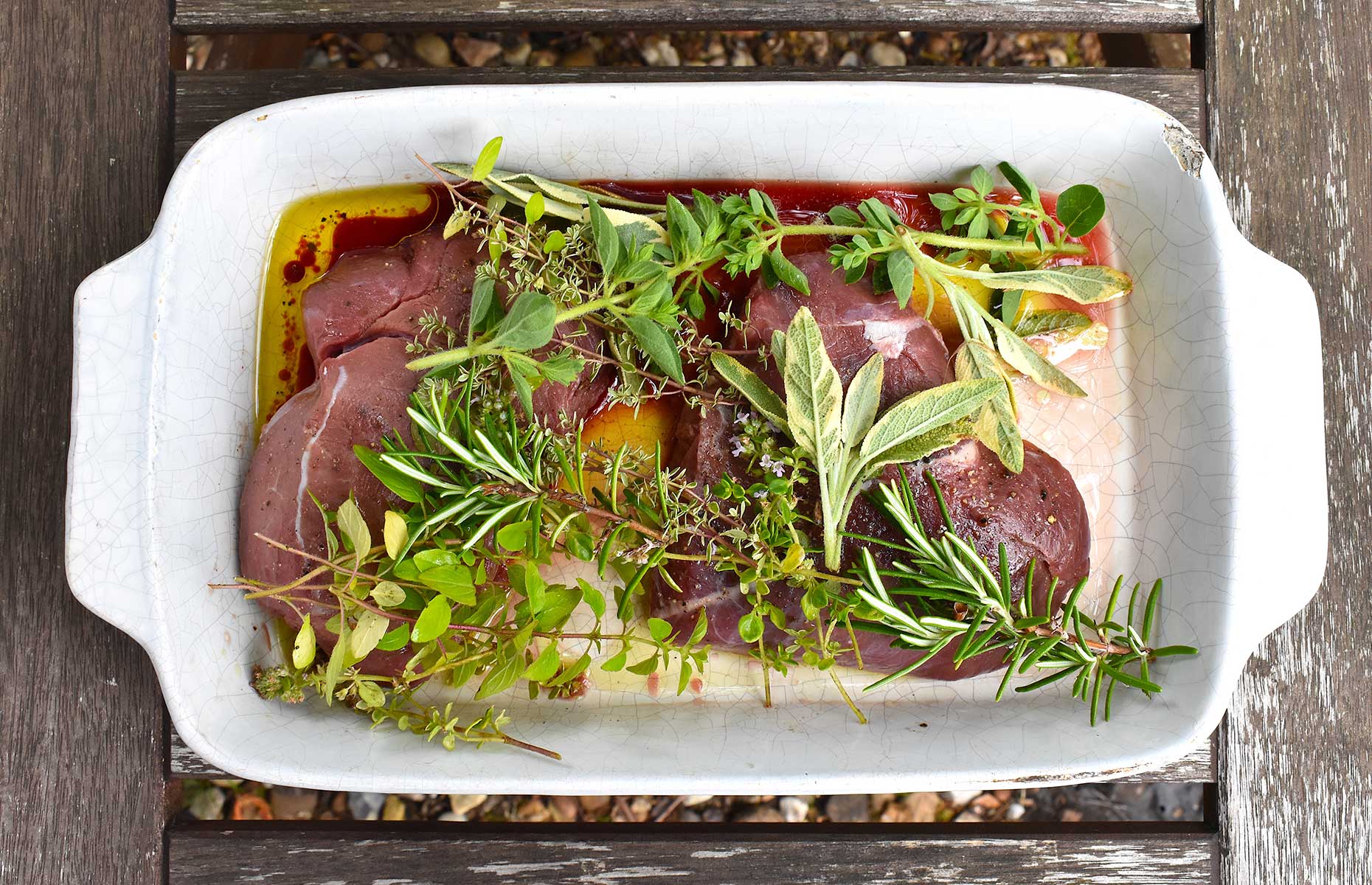
How to store game
Game meat can be easily frozen and stores are often stocked up throughout the season when there is plentiful supply.
The key is to defrost and thaw the day before eating, season and marinate the evening before cooking and remove from the fridge early on the day so it is at room temperature when you are ready to cook.
As poultry, game birds should be fully thawed before cooking and must be cooked through properly before eating.
READ MORE: Our best-ever tips for organising your freezer
Some game-eating families will recommend hanging whole birds for few days before butchering them in order to tenderise the meat. However, if you are able to get game birds at source then butchering and preparing or freezing them immediately works very well too.
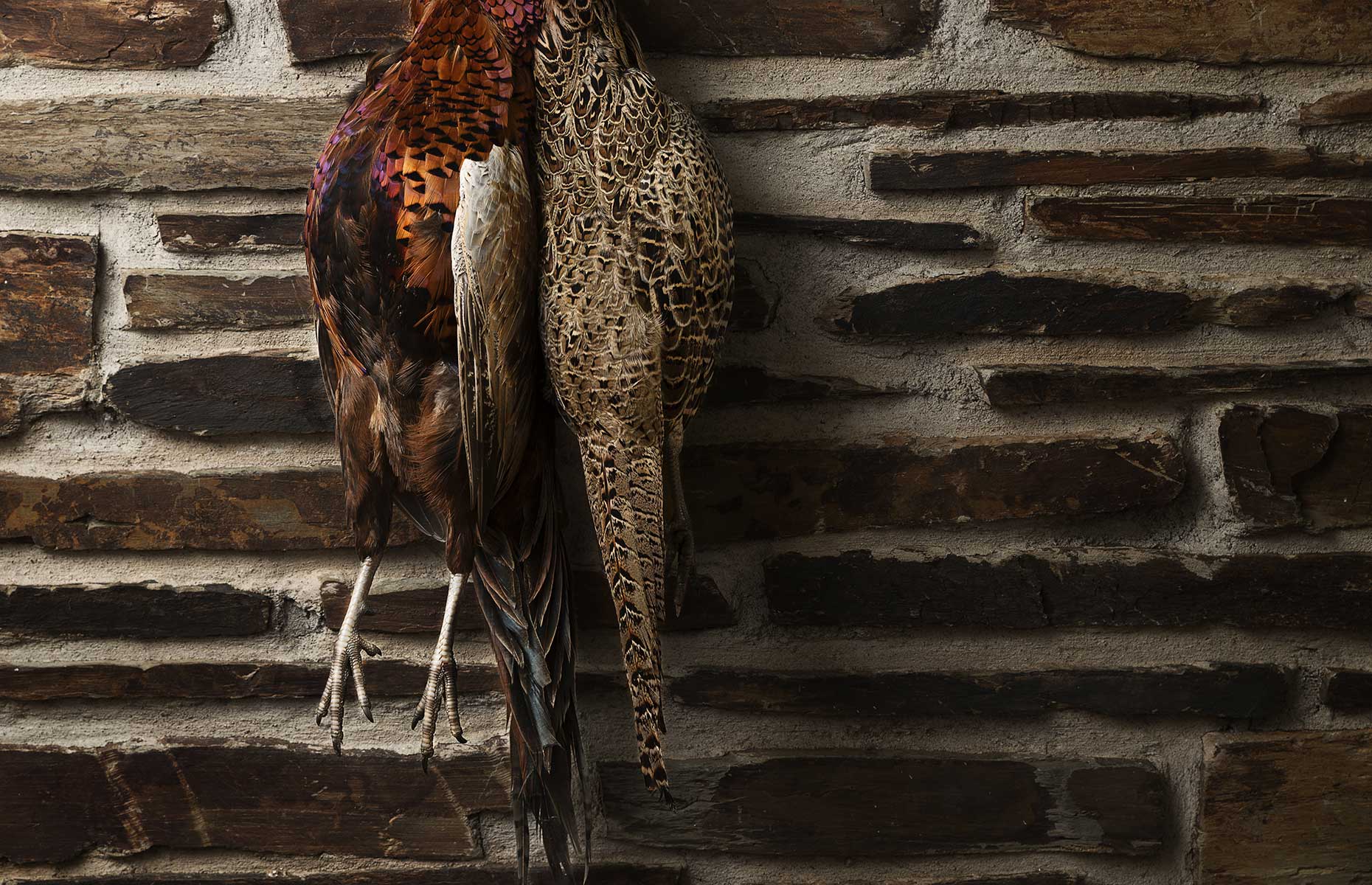
Venison can be stored much like beef – it freezes well and can be kept in the fridge for two to three days before eating.
Venison can be frozen twice (eg, frozen raw and then again once in a cooked dish) but doing so does affect the taste, so stick to one freeze if you can.
Cooking tips
Venison: venison is a versatile meat and it takes time to learn the tastes and advantages of the different cuts and species of deer.
Bigger pieces of venison are ideal for wellingtons or roasts and can be and can be cooked as rare or as well done as you would like.
Venison also offers an excellent option for the BBQ including lightly seasoned cutlets, steaks, ribs and haunches.
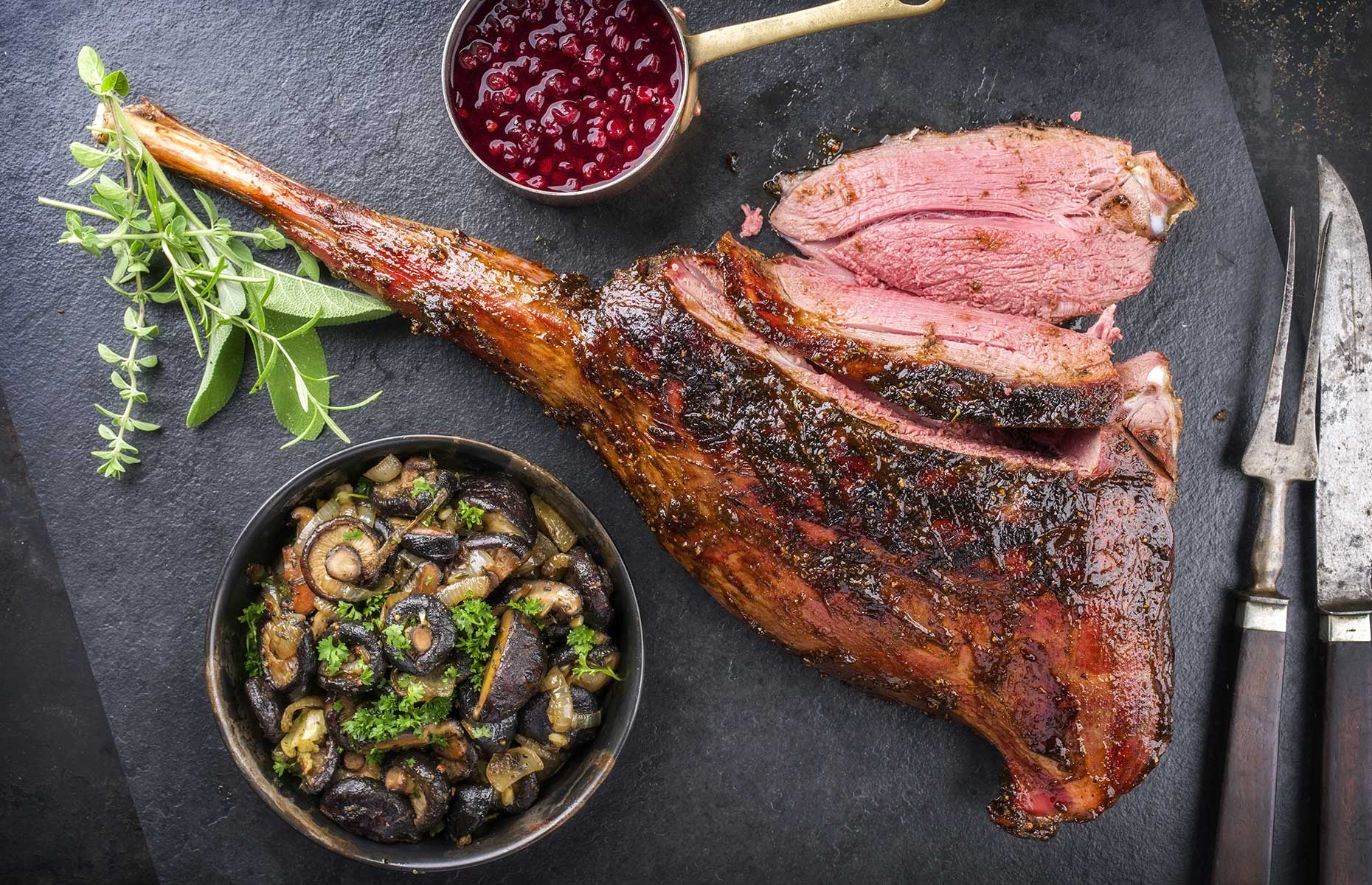
If you are using venison in a pie or casserole, be sure to stew slowly on a low heat for a few hours to maximise the flavours and tenderness of the meat.
READ MORE: Our guide to barbecuing
Game birds: pheasant and partridge are similar to chicken and it is easy to switch them in classic family dishes. As game bird meat can sometimes taste earthier and drier than chicken, it’s best to team it with spices and sauces in dishes such as curries, this pheasant winter bake or this teriyaki-style wood pigeon.
Top tip: with game birds there may be tiny fragments of lead shot in the meat, be sure to warn guests and don’t serve to those with dental issues.
Wild boar: wild boar has a rich and nutty flavour, so it’s best to keep things simple. This wild boar ragù uses juniper berries to enhance the meat’s flavour. You’ll also find wild boar sausages which can replace and be cooked in the same way as pork.
If cooking wild boar steaks do them rare to medium-rare to keep them tender.
Main image: hlphoto/Shutterstock
Comments
Do you want to comment on this article? You need to be signed in for this feature
